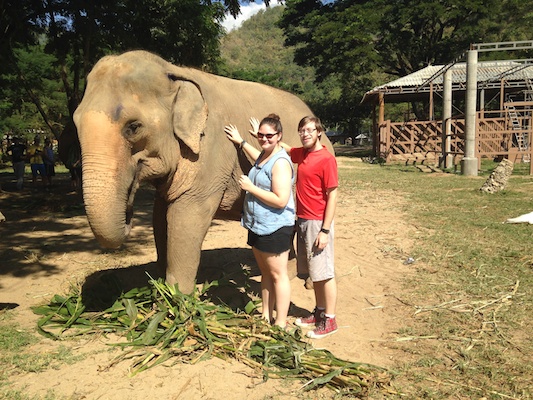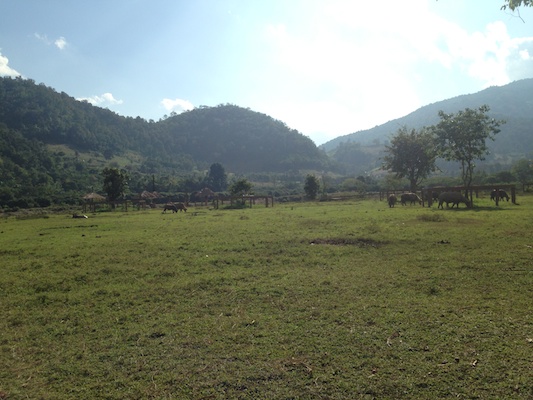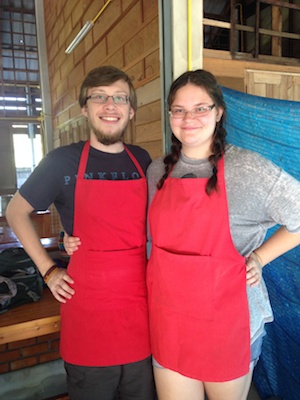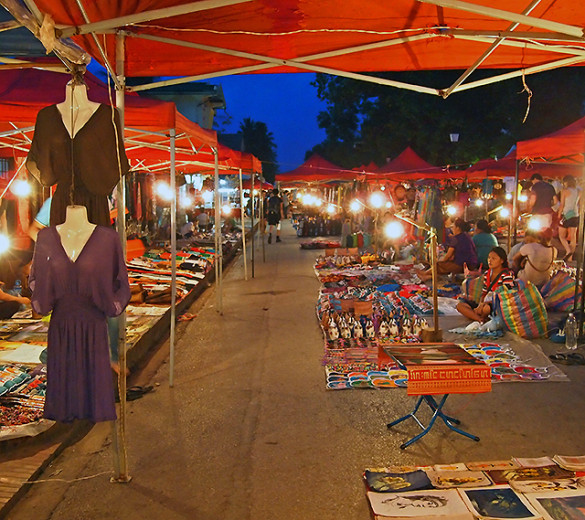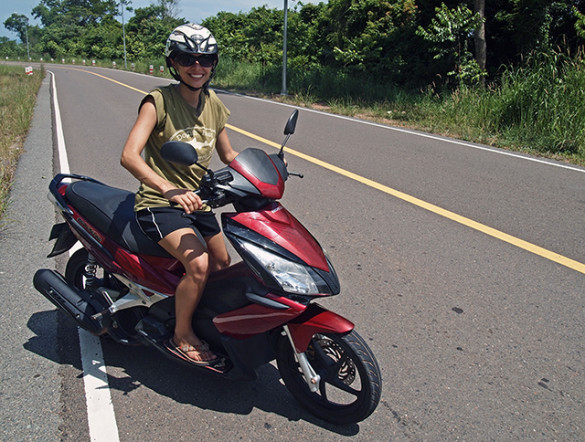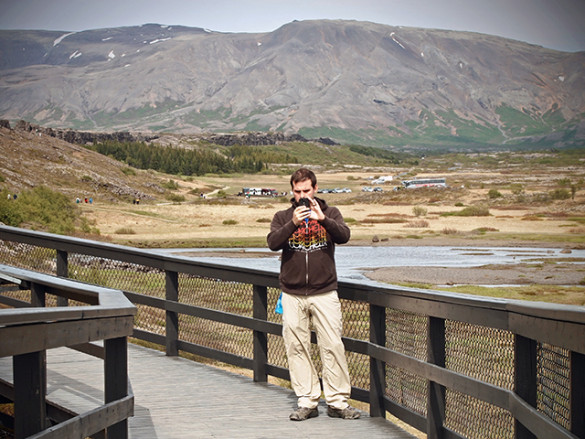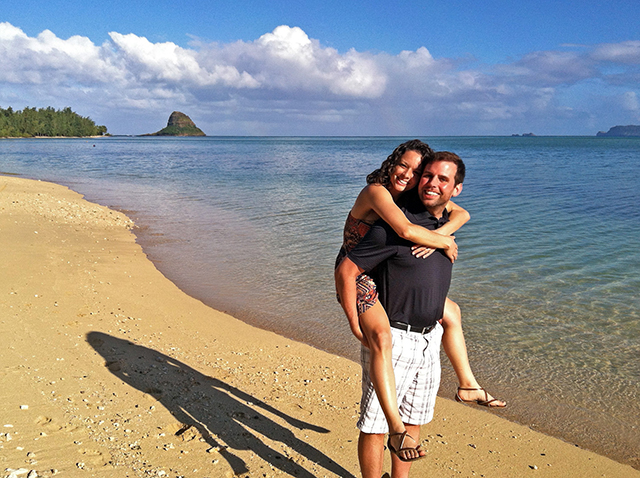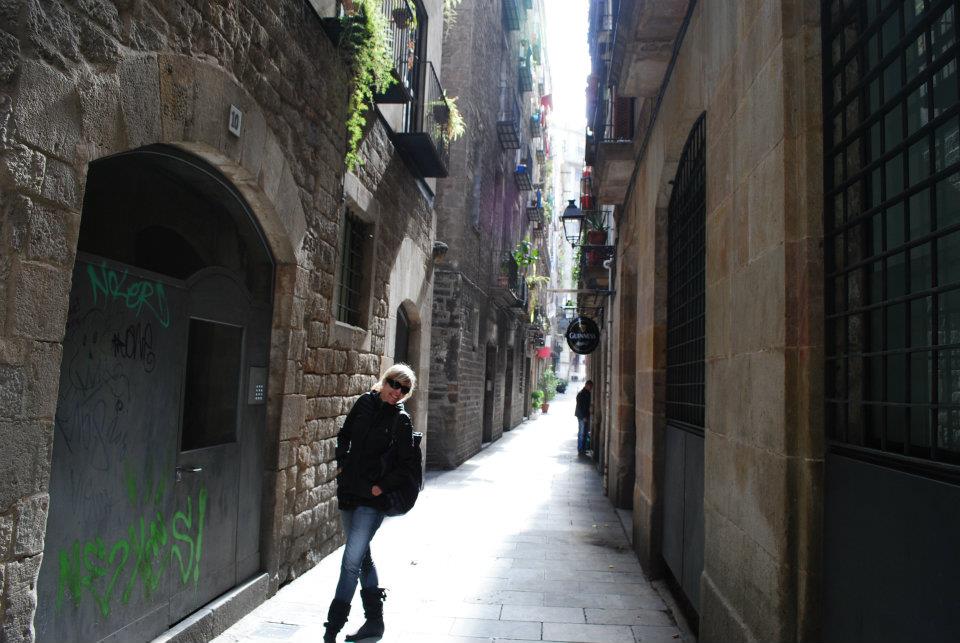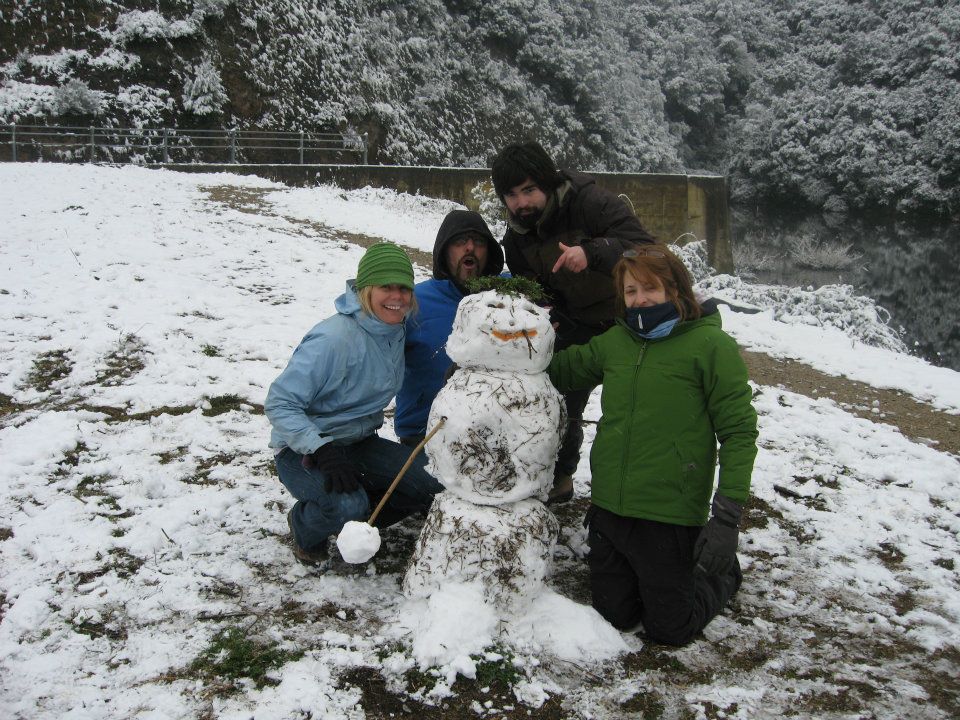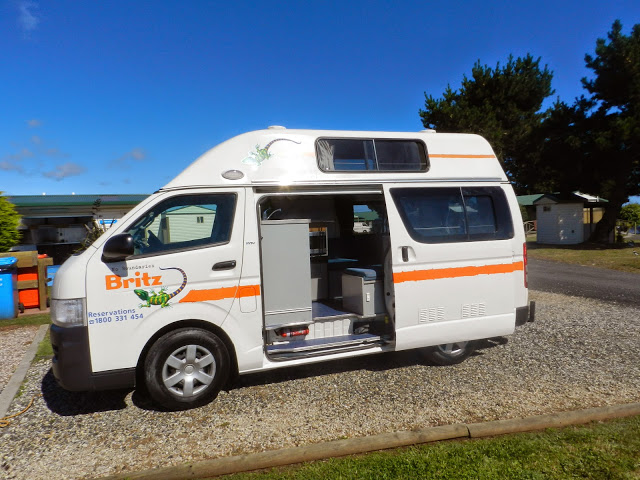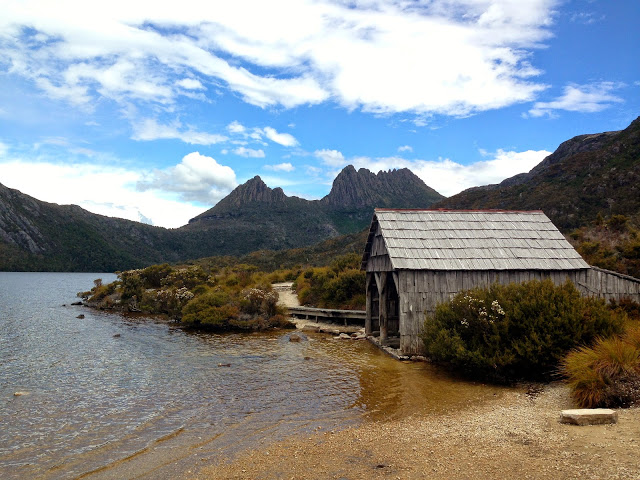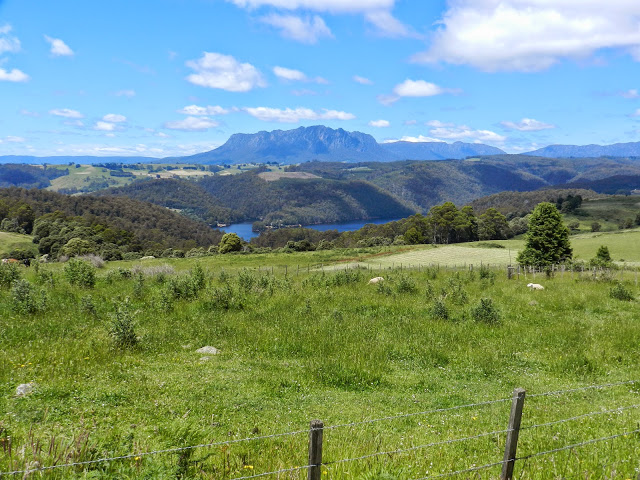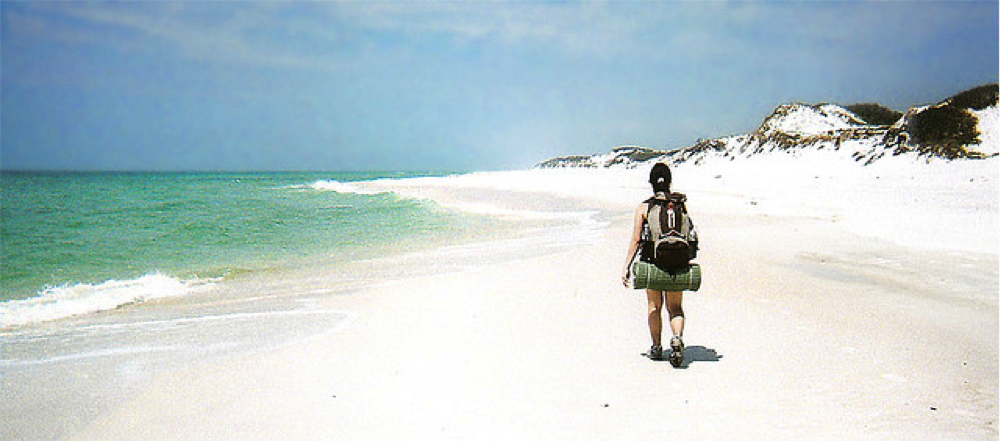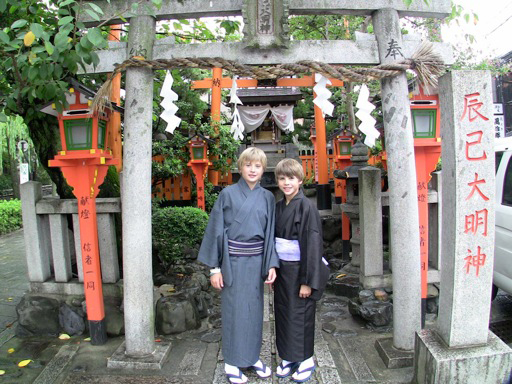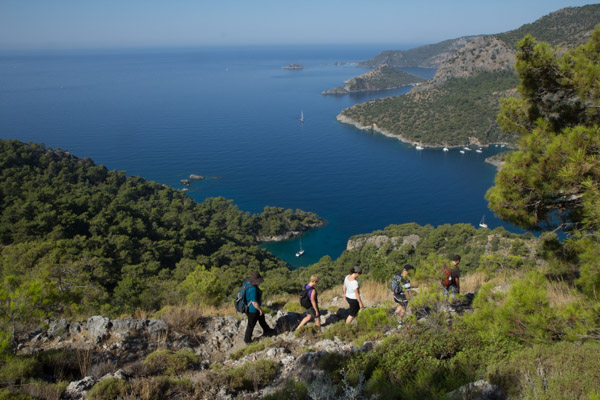
Take a break from your career break and try a small group tour
Taking a career break to explore the world is a tremendously freeing experience, during which you’ll have the chance to learn much about other cultures – and yourself! However, planning a long-term trip can be a daunting process. Solo travel is rewarding, but also nerve-wracking, and while on your travels you may find yourself needing to take a break (from taking a break!). This is where a group tour can provide some relief. Guided tours provide an opportunity to let someone else take care of all those pesky logistics: like accommodation, transportation, and daily itineraries.
You may be wondering “but group tours are so limiting! Will I get to see everything I want?”
The short answer is: “yes!” Group tours are often different than people expect. Particularly those who tend to travel independently. You may be surprised by how much independence you actually have during your tour! Sherry Ott, who took a solo career break in 2006 notes of her own experience: “If you choose the right companies, small group tours can be some of the most rewarding travel you do on your career break – it was for me. The group tours I did arranged all of the logistics (transportation and hotels), but the rest was really up to me. I could eat with the group or go alone, do the tour or explore on my own. But the best part was that you always had a local guide with your group that traveled with you, ready to answer questions. It was a way to get much closer to the culture of the country than I could have on my own.”
Here’s 5 reasons to consider a group tour during your extended travels:
1. Easily Socialize with Others
You’ve been on the road for a while. You’ve met people along the way, but everyone is transient, on their own adventures around the world. It starts to wear on you a bit. Though it’s still exciting, you begin to wish you had more than a few hours here and there with new friends, to really get to know your fellow traveler.
On a group tour, you’ll have a lot of time to meet and get to know like-minded travelers. And some tour companies even provide ways to pre-meet each other in forums or local city meet-ups! While you might not be life-long friends with everyone on your trip, you will likely find a few people that you automatically click with.
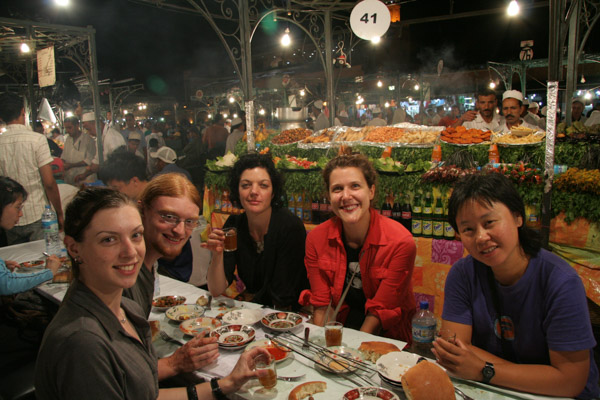
A group dines in Morocco together on a small group tour of the country
2. Cultural Immersion
Though some may argue that true cultural immersion only comes from striking out on your own, many tour operators give you the opportunity to venture deeper into local life. This is especially true of more dangerous destinations, where solo tourists are advised to stay in very specific areas.
But with a tour, oftentimes your guide will have connections in the area. And you are granted the unforgettable experience of dining in a small local restaurant, meeting local families, and getting a true glimpse into a new culture. This is especially true if you join a small-group tour, where group sizes are usually 10-16 travelers maximum.
3. Some destinations require you to be on a tour
Then of course, there are some places where you simply cannot visit on your own. Interested in seeing the diverse wildlife of Africa? A safari will get you up close and personal with the animal residents of the Savannah.
Although tourism regulations to Cuba have been greatly relaxed, a tour is still a good idea – it will help guarantee accommodation, and you’ll be able to explore the farther reaches of the island.
Want to check that 7th continent off your list? Antarctica is only accessible by tour (unless you’re a scientist!).

Go with a group to Antarctica
4. Local Expertise
Getting to know a destination through the eyes of an expert is an incredible way to have a deeper travel experience. They bring the boring plaque next to the landmark to life, provide context to a famous building, and introduce a new way to think about cultures and customs. Many tour companies employ only local guides, so it’s sort of like traveling with a friend who knows the best places to eat and find that perfect gift for a loved one back home.
5. Maximum bang for your buck
Busy days, covering long distances, checking off famous sites. On a guided tour, you will have the opportunity to see a lot more in a condensed period of time. This can be helpful for those wanting to take a break from the “slow wander” and pick up the pace, participate in activities, watch demonstrations, and get special access to landmarks and attractions. Often times, tours will save you money over solo travel since operators get deep discounts on things like accommodation.
When considering group tours, there are so many options you’re sure to find the perfect one suited to your personality. Let your sabbatical be enhanced and made easier by incorporating a fun guided trip into the experience!
About Samantha Scott
 Samantha Scott is the Content Manager for Stride Travel, a marketplace where you can search among thousands of trips, read reviews, and find the perfect guided travel experience for you.
Samantha Scott is the Content Manager for Stride Travel, a marketplace where you can search among thousands of trips, read reviews, and find the perfect guided travel experience for you.





